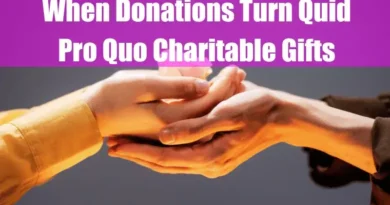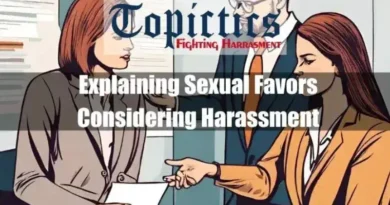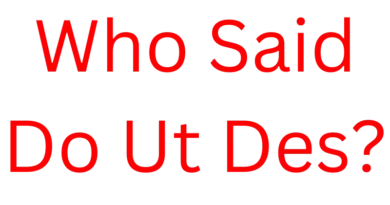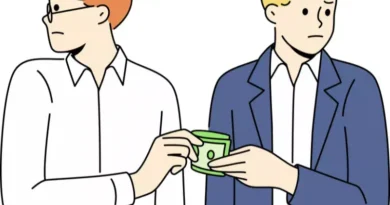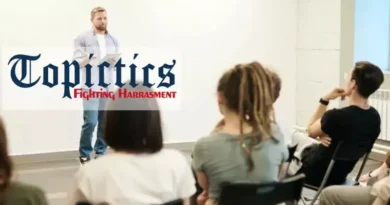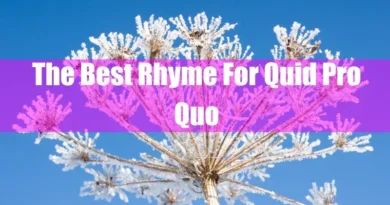How Does the Supreme Court Define Quid Pro Quo?
The U.S. Supreme Court generally defines quid pro quo as a direct exchange where something of value is offered or given to influence an official act. This concept is often used in bribery cases, where a clear agreement must exist: the payment or benefit is specifically tied to the performance of an official duty. The Court differentiates this from gratuities, gifts given after an act without a prior agreement. The focus is on proving intent to influence before the official act occurs, which is essential for a quid pro quo arrangement to be deemed corrupt and illegal.
Takeaways
| Key Points |
|---|
| The legal framework of quid pro quo, shaped extensively by U.S. Supreme Court rulings, addresses the intersection of bribery, corruption, and ethical governance by emphasizing the requirement for a clear exchange of value for official acts. |
| Quid pro quo, meaning “something for something,” must involve a direct link between a benefit—monetary or non-monetary—and a specific government action, as clarified in landmark cases like United States v. Sun-Diamond Growers of California and McDonnell v. United States. |
| These cases established that an official act must entail a formal exercise of governmental power, not merely informal actions like arranging meetings. |
| Furthermore, rulings like Evans v. United States demonstrate that quid pro quo can exist through implicit agreements, while McCormick v. United States underscores the explicit nature required in campaign contributions to constitute bribery. |
| This evolving legal doctrine highlights the necessity for public officials and legal practitioners to remain vigilant, ensuring compliance with ethical standards while navigating the complexities of the Supreme Court’s precise and nuanced definitions. |
Legal Framework of Quid Pro Quo
The U.S. Supreme Court has developed a nuanced understanding of quid pro quo, particularly in the context of bribery and corruption. This concept plays a critical role in maintaining the integrity of public office and ensuring that government actions remain unbiased and in the public interest. Through a series of landmark cases, the Court has clarified what constitutes quid pro quo and the legal parameters that define it.
Quid pro quo, a Latin term meaning “something for something,” refers to an exchange where one party provides something of value to another party in return for a specific benefit or action. In legal terms, particularly within U.S. Supreme Court jurisprudence, quid pro quo is often examined through bribery and corruption statutes. The Court has emphasized the need for a clear connection between value and the official act.
Landmark Supreme Court Cases
McDonnell v. United States (2016)

In McDonnell v. United States, the Supreme Court addressed the definition of “official act” in quid pro quo corruption cases. Former Virginia Governor Robert McDonnell and his wife were convicted of accepting loans, gifts, and other benefits from a businessman in exchange for promoting a dietary supplement. The key issue was whether McDonnell’s actions constituted an “official act” under federal bribery laws.
The Court held that merely setting up meetings, calling other public officials, or hosting events does not qualify as an official act unless these actions involve a formal exercise of governmental power. The decision narrowed the scope of an official act, requiring a more direct and explicit connection between the exchange and the exercise of official governmental duties.
United States v. Sun-Diamond Growers of California (1999)
In this case, the Supreme Court addressed whether gifts provided to a public official must be explicitly connected to a particular official act to constitute a violation under the federal bribery statute. Sun-Diamond Growers had given gifts to the Secretary of Agriculture, but no specific actions benefiting the company were directly tied to these gifts.
The Court ruled that a bribery conviction must have a direct link between the gift (thing of value) and a specific official act. General gifts, given with the hope of favorable future actions, do not meet the standard for bribery unless tied to a particular act. This decision clarified that a quid pro quo arrangement is necessary for bribery.

Skilling v. United States (2010)
In Skilling v. United States, the Supreme Court addressed the scope of the “honest services” fraud statute, which had been used to prosecute various fraudulent activities, including corruption and self-dealing. A former Enron executive, Jeffrey Skilling, was convicted under this statute for defrauding Enron and its shareholders.
The Supreme Court significantly narrowed the statute’s application, limiting its use to cases involving bribery or kickback schemes. The decision clarified that not all unethical conduct qualifies as honest services fraud; there must be a clear quid pro quo involving bribery or kickbacks for the statute to apply.
Evans v. United States (1992)
Evans v. United States addressed whether an explicit promise or agreement is required to prove quid pro quo bribery under the Hobbs Act. In this case, a county commissioner, John H. Evans, was convicted of extorting money in exchange for favorable official actions. Although an undercover FBI agent was involved, the case did not focus solely on zoning decisions but rather on the broader scope of extortion.
The Supreme Court ruled that an explicit promise is not necessary to establish quid pro quo bribery. Instead, it is sufficient to demonstrate that the public official accepted something of value, understanding that it was offered in exchange for favorable official actions. This decision clarified that quid pro quo bribery can include implicit understandings without a formal or explicit agreement.
McCormick v. United States (1991)
This case involved a state legislator who accepted campaign contributions from a group seeking favorable legislation. The key issue was whether these contributions constituted quid pro quo bribery.
The Supreme Court determined that campaign contributions are considered quid pro quo bribery only when the payments are made in return for an explicit promise or agreement by the official to perform or not perform an official act. This ruling emphasized the need for a clear and direct connection between the contribution and the official action.

Detailed Analysis of Supreme Court’s Definition
Detailed Analysis of Supreme Court’s Definition of Quid Pro Quo
The Supreme Court’s decisions in landmark cases have established a framework for understanding quid pro quo in bribery and corruption cases. Key elements include:
- Direct Link: There must be a specific connection between the thing of value (such as gifts, money, or other benefits) and an official act. The benefit must be tied directly to a specific government action, not merely a general favor or broad hope for favorable treatment (United States v. Sun-Diamond Growers).
- Explicit or Implicit Agreement: While quid pro quo often involves an explicit agreement (a clear exchange of value for an official act), the Court has also held that an implicit understanding between parties can be sufficient to establish quid pro quo. This means that even without an overt promise, the circumstances and conduct of the parties can indicate a corrupt arrangement (Evans v. United States).
- Official Act: The definition of an “official act” is crucial in determining whether an action qualifies as quid pro quo. An official act must involve a formal exercise of governmental power, such as decisions, actions, or policies directly affecting governmental operations. Routine actions like setting up meetings or making introductions do not qualify unless they involve or influence such formal duties (McDonnell v. United States).
- Campaign Contributions: Campaign contributions only constitute quid pro quo bribery if they are explicitly tied to a promise or agreement to perform an official act. The Court has distinguished between lawful contributions given in support of a candidate and those made with the expectation of a specific official action (McCormick v. United States). However, in other cases, an implicit understanding without a formal promise may be sufficient for bribery charges (Evans v. United States).

Implications for Public Officials and Legal Practitioners
Understanding the Supreme Court’s definition of quid pro quo is vital for public officials, legal practitioners, and policymakers. It helps define boundaries for acceptable conduct, aiming to prevent public officials from using their positions for illegal or unethical personal gain. Legal practitioners must navigate these definitions carefully to provide accurate advice and representation in bribery and corruption cases.
Public officials must be vigilant in avoiding any appearance of impropriety. Accepting gifts, loans, or other benefits must be scrutinized to ensure they do not fall within the parameters of quid pro quo. Transparency and clear communication about the nature of contributions and benefits are essential to maintaining public trust.

Conclusion to “How Does the Supreme Court Define Quid Pro Quo?”
The Supreme Court has played a significant role in interpreting and refining the concept of quid pro quo in U.S. law. Landmark cases, such as McDonnell v. United States and Evans v. United States, have helped establish key distinctions between acceptable political conduct and corrupt practices. However, these decisions have also added complexity by narrowing the definition of what constitutes an “official act” in cases of bribery and corruption, making it harder to distinguish lawful behavior from unlawful actions.
The Court’s jurisprudence is crucial in maintaining the integrity of public office by ensuring that government actions are not improperly swayed by personal gain. This evolving legal framework emphasizes that there must be a clear connection between something of value offered and a specific official act, addressing both explicit and implicit agreements. Moreover, as clarified in McDonnell, an official act requires a formal exercise of governmental power, not merely informal actions like arranging meetings or making introductions.
Understanding these elements is essential for navigating the legal boundaries of quid pro quo under U.S. law. The ongoing refinement of these principles by the Supreme Court calls for public officials and legal practitioners to remain vigilant in upholding ethical standards. As the legal landscape evolves, staying informed about the latest rulings is crucial to maintaining public trust and preventing misconduct.
While the Supreme Court’s decisions provide legal clarity on quid pro quo, they have also raised concerns about the potential for unethical behavior to evade legal scrutiny. Despite this, these rulings continue to reinforce principles of justice and fairness, playing a key role in safeguarding public confidence in government officials.
FAQ
Can non-monetary benefits be considered in quid pro quo cases?
Yes, non-monetary benefits, such as gifts, favors, or services, can be considered in quid pro quo cases when these are exchanged for official actions or influence. Quid pro quo arrangements, by definition, involve the exchange of something of value, and this value need not be monetary. Non-monetary benefits are often scrutinized in legal contexts like bribery or corruption cases, where an official may receive personal favors or services in return for political or business advantages. The key factor is the existence of a reciprocal expectation that the non-monetary benefit will influence an official act or decision, making these benefits equally relevant under the law as monetary exchanges.
How does the Supreme Court view quid pro quo in employment discrimination cases?
In employment discrimination cases, the U.S. Supreme Court recognizes quid pro quo harassment as a form of unlawful discrimination under Title VII of the Civil Rights Act. Quid pro quo harassment involves situations where an employee’s submission to or rejection of unwelcome sexual advances is directly linked to employment decisions, such as promotions or terminations.
The Supreme Court has ruled that employers are vicariously liable for quid pro quo harassment if a supervisor’s actions result in a “tangible employment action” (such as firing or demotion). In these cases, proof of employer negligence is not required. However, if no such tangible employment action occurs, the employer may defend itself by demonstrating that it took reasonable steps to prevent and correct the harassment and that the employee unreasonably failed to take advantage of these measures.
This distinction is crucial for determining the scope of employer liability in harassment cases involving supervisors.
How do state laws align with the Supreme Court’s definition of quid pro quo?
State laws generally follow the Supreme Court’s definition of quid pro quo, which involves a clear exchange of something of value for an official act, although some variations exist. Federal cases require strong proof of intent to establish such exchanges, while state laws may vary in terms of the rigor applied to this standard. Additionally, certain states impose stricter regulations on gifts and gratuities to public officials, even without a formal quid pro quo arrangement.
What is the Supreme Court’s definition of quid pro quo?
The Supreme Court’s definition of quid pro quo centers on a reciprocal exchange where one party provides a benefit in return for another’s consideration. It is characterized by an open and voluntary transaction, ensuring that both sides receive something of tangible value. This definition underscores the importance of mutual consent and fairness in establishing legally enforceable agreements, distinguishing legitimate transactions from corrupt practices.
How does the concept of reciprocal exchange factor into the definition?
Reciprocal exchange, as the Supreme Court understands, means that each party offers a clearly defined benefit, making the transaction balanced and mutually beneficial. This concept ensures that there is no one-sided inducement and that the exchange is based on explicit, mutual understanding. The emphasis on reciprocity reinforces the principle that only voluntary and equitable exchanges qualify as legitimate quid pro quo arrangements.
What role does mutual consideration play in quid pro quo?
Mutual consideration is the foundation of a quid pro quo arrangement. The Supreme Court emphasizes that for an exchange to be lawful, each party must provide something of value, which constitutes the “consideration” necessary for the contract. This mutuality ensures that neither party is unfairly advantaged, thereby safeguarding the transaction’s integrity and compliance with legal and ethical standards.
How is intent addressed in the Supreme Court’s definition?
Intent is critical in distinguishing a lawful quid pro quo from a corrupt exchange. The Supreme Court focuses on both parties’ genuine, uncoerced intent to engage in a fair transaction. A bona fide quid pro quo requires that the exchange is entered into voluntarily, with both sides fully aware of the benefits and obligations, thus excluding arrangements driven by ulterior motives or coercion.
What is meant by transparency in quid pro quo exchanges?
Transparency in quid pro quo arrangements requires that all terms of the exchange are clearly communicated and documented. The Supreme Court’s framework insists that both parties must fully disclose the benefits involved, ensuring there is no ambiguity about the nature or value of the exchange. This openness is essential for verifying the transaction’s legitimacy and maintaining public trust in legal and contractual relationships.
How does documented evidence confirm a quid pro quo arrangement?
Documented evidence is pivotal in confirming a quid pro quo by providing tangible records—such as contracts, emails, or receipts—detailing the agreed-upon benefits. According to the Supreme Court’s perspective, such documentation is crucial in demonstrating that both parties have knowingly and willingly participated in the exchange. This record-keeping ensures accountability and serves as a safeguard against disputes or allegations of impropriety.
What is the significance of benefit disclosure in the Court’s analysis?
Benefit disclosure refers to the requirement that all benefits exchanged under a quid pro quo are fully and clearly disclosed to all parties involved. The Supreme Court views this as a fundamental element of a lawful transaction because it allows for informed consent. Ensuring that the value and nature of each benefit are explicitly stated helps prevent misunderstandings and reinforces the integrity of the exchange.
How does the term “transactional clarity” apply to quid pro quo?
Transactional clarity means that both parties precisely define and understand every element of the exchange. The Supreme Court emphasizes that such clarity is essential to confirm that a quid pro quo is not merely an implied or vague arrangement but a concrete and deliberate transaction. Clear terms and conditions help verify the exchange’s legitimacy and establish enforceable obligations.
What is the role of contractual agreements in establishing quid pro quo?
Contractual agreements are central to the Supreme Court’s view of quid pro quo, as they formalize the terms of the exchange. These agreements ensure that the reciprocal benefits are not only discussed but legally documented, creating enforceable obligations for both parties. A contract’s formal nature also helps distinguish a quid pro quo from informal or casual exchanges that might lack the necessary legal rigor.
How does the Court address the concept of consent in these exchanges?
Consent is a core requirement for a valid quid pro quo under the Supreme Court’s definition. It must be given freely and knowingly by both parties, without any form of coercion or misrepresentation. This clear and unequivocal consent confirms that both sides agree to the terms of the exchange, thereby upholding the legal principle of mutuality and ensuring the transaction’s fairness.
What does “unlawful inducement” mean in this context?
Unlawful inducement is any attempt to sway a decision or action through improper means rather than a genuine, voluntary exchange. The Supreme Court’s definition of quid pro quo excludes any transaction that relies on such inducements, as they undermine the voluntary nature of the agreement. Only exchanges based on fair and lawful inducement—where benefits are clearly exchanged for consideration—are recognized as legitimate.
How is the balance of exchange maintained according to the Supreme Court?
Maintaining a balance of exchange is vital for a quid pro quo to be deemed lawful. The Supreme Court requires that both parties receive benefits of comparable value, ensuring that the transaction is equitable. This balance prevents any disproportionate advantage and reinforces the concept that a valid quid pro quo must be a fair and mutual arrangement, free from exploitation or undue pressure.
What does the term “ethical standard” signify in the Supreme Court’s framework?
The term “ethical standard” in quid pro quo refers to the moral principles governing fair and transparent exchanges. The Supreme Court’s interpretation insists that a legitimate quid pro quo not only complies with legal requirements but also meets high ethical benchmarks. This means the exchange should foster trust, accountability, and integrity, ensuring all parties act in good faith.
How is regulatory compliance integrated into the definition?
Regulatory compliance is integrated into the Supreme Court’s definition by requiring all quid pro quo exchanges to establish legal and administrative guidelines. This ensures that the transaction is ethical and transparent and meets the statutory requirements set forth by regulatory authorities. Compliance serves as a critical check to prevent abuses and maintain the legal system’s overall integrity.
How does the Supreme Court’s definition guide practical application in various contexts?
The Supreme Court’s definition of quid pro quo serves as a blueprint for evaluating the legitimacy of exchanges across diverse legal and institutional settings. By focusing on clear criteria such as mutual consent, transparency, documented evidence, and ethical standards, the definition guides practitioners in distinguishing between lawful transactions and those involving corruption or coercion. This comprehensive framework is instrumental in upholding fairness and accountability in both public and private sectors.




